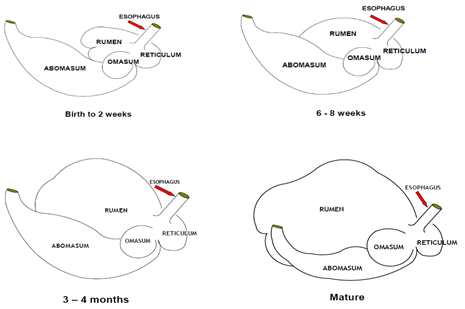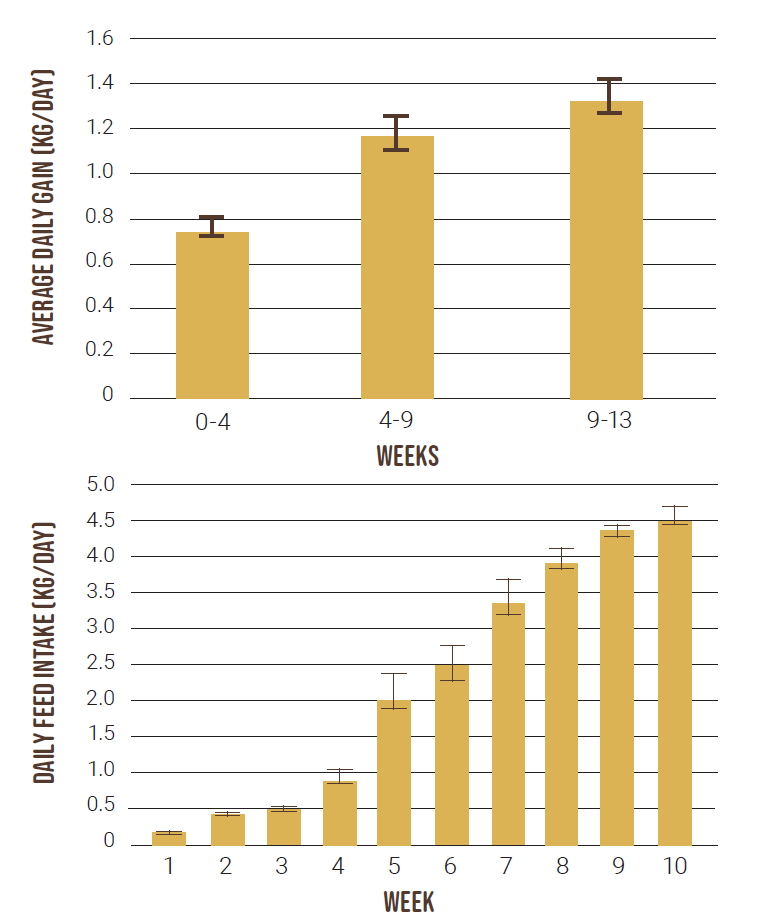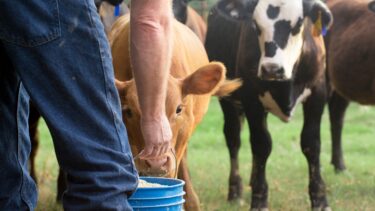Rumi Start maximally nurtures your young potentials
Maximizing efficiency is key for dairy and beef farmers to obtain better revenues. Accelerated calf rearing without losing focus on health issues is vital to achieve this. Rapid growth of calves results in earlier insemination and a lower age of first calving contributes to more efficient milk production. Rumi Start is developed to give your young ruminant potentials a head start in life.
Accelerated calf rearing for maximizing efficiency
On average, it takes a dairy calf more than 24 months from birth until first calving. Until that moment, the calf is a cost for the farmer. Speeding up this growth process helps to maximize efficiency and optimize farmer’s revenues. Indeed, rapid growth of calves gives a better chance for successful earlier insemination. On top of that, accelerated calf rearing often leads to more milk production during the first lactation and therefore contributes to a more efficient milk production.
Impact of young ruminant’s physiology
Calves generally have a huge genetic potential to produce large amounts of dairy milk or to grow fast and efficiently in case of beef animals. Unlocking this potential often comes down to maximizing growth in the first weeks of life. The faster the rumen is developed, the earlier a large capacity for absorbing nutrients is available. Close after birth, the rumen is still in a premature state and hardly developed yet, while a fully functional rumen in mature cows accounts for 80 % of the forestomach complex (Figure 1). A good quality concentrate can stimulate the general growth of the rumen and its papillae to maximize absorption capacity. Besides rumen volume, also the density of rumen papillae and rumen wall thickness are important. Therefore, also a good quality fibre source is important to impact the growth of the muscle layer and increase the quality of the papillae. Moreover, good rumen development also helps to reduce the post-weaning growth dip.

Impact of young ruminant’s microbiome
At birth, the microbiome of the calve is still in a pre-ruminant state. Most bacterial species are already present at birth, but their abundance vastly changes within days. Early in life, Proteobacteria (70%) and Bacteroidetes are the main bacterial communities. However, as early when solid feed intake increases, Prevotella becomes dominant and many genera strongly decrease and can no longer be detected (Rey et al. 2013). Therefore, the earlier solid food intake can be promoted, the faster the rumen microbiome can make the shift to a mature ruminant state (Meale et al. 2016). Indeed, the rumen delivers 70% of the total energy supply via fermentation processes, so at weaning, when calves become fully dependent on solid feed, their rumen microbial community should be as functionally as possible to maximize energy efficiency and speed-up the growth process.
Rumi Start for a head start in life
Rumi Start is developed to maximize calves’ growth efficiencies (Figure 2). This prestarter ‘muesli’ ensures large feed intake and daily gain because of better taste and texture. Moreover, specificaly steam flaked cereals promote the development of the rumen papillae and rumen wall thickness. The heat treatment of grains can improve digestibility as well, offering possibilities to amend feed conversion. Further, the muesli contains a pelleted concentrate offering a good quality protein and energy source. Sufficient starch and sugar, which is mainly fermented to propionic and butyric acid, help to trigger the development of the rumen wall. Also specific fiber sources help shaping the ideal rumen microbial community. Finally, all necessery micro-components, combined with the proven effects of Vitanox and Aromabiotic® Cattle ensures an efficient start in life to maximize your revenues.

This contact was suggested based on the location you are browsing from. You can of course also consult our other contacts and locations here.

